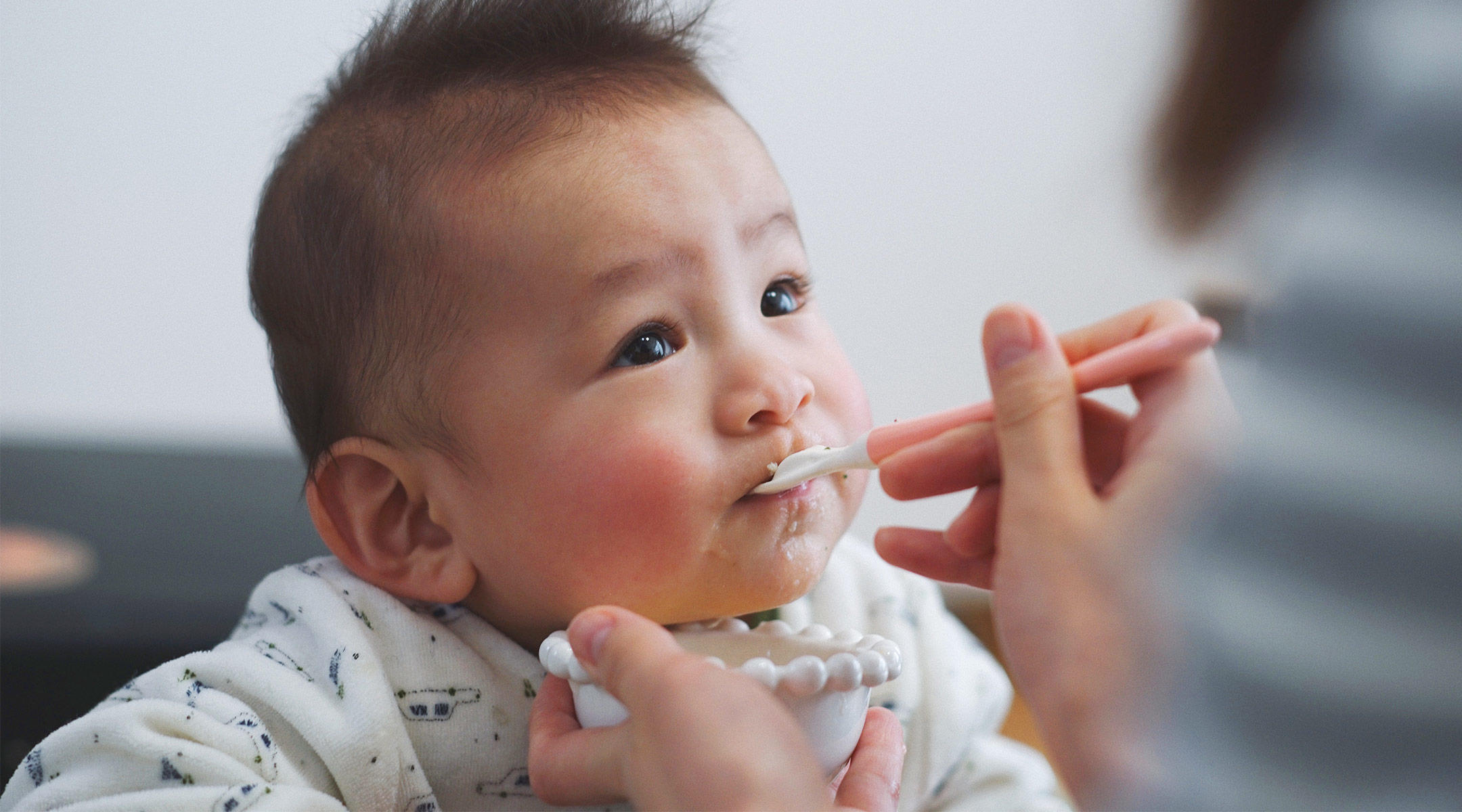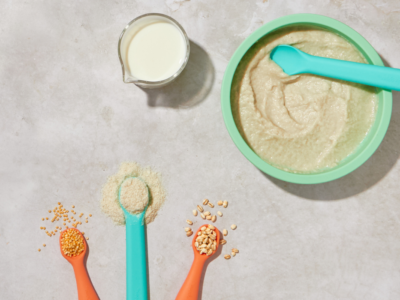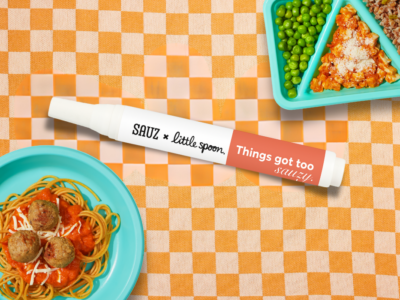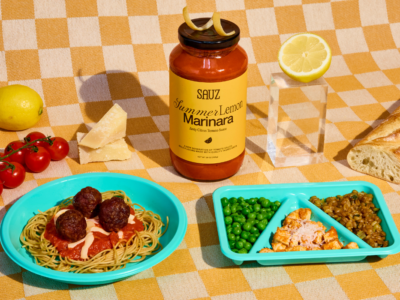Figuring out when and how to introduce baby to their first foods can feel overwhelming. Here, some fun facts to make the experience all the more enjoyable.
Introducing baby to solid foods is one of the most exciting (not to mention critically important) milestones during the first year of parenthood, and it’s always a special time to look back on as your little one turns into a not-so-little kid. Up to this point, all they’ve known when it comes to flavor is breast milk or formula. You’re about to rock their world by introducing vegetables, fruits, grains and all the delicious flavors and foods in the world. They literally won’t know what hit them. Here’s the best part: It’s actually a ton of fun, and there are plenty of happy moments to enjoy—especially when you’re armed with some essential info. Sure, there are a few messes in store, but it’s all a fun adventure with these 10 things you didn’t know about starting solids.
1. You can skip cereal
When it’s time to introduce baby to solids, some parents think of baby rice cereal as the first step. But it’s a step you can actually skip! At Little Spoon, we like to say that baby’s first foods should be real foods. In other words, go straight for the good stuff: fresh, bright veggies and fruits are the best firsts for baby. Many parents opt to start with banana or avocado because of their easy mashability, but don’t stress about what specific foods to start with.
2. You get to shape your baby’s tastes
This is one of the most important—and fun—aspects of introducing solids to baby. With early infant feeding, you can shape your child’s flavor preferences toward appreciating real, whole foods and flavors. Serve fresh as much as possible and don’t hold back with ingredients. The more you can introduce now, the better. Variety is your friend (especially when there is no family history of allergies). You really can’t introduce too much.
3. You can get ahead of the picky eating stage
When babies first start solids, they’re still in a very curious and accepting stage. Fast forward to around 20 to 24 months, they’ll learn the word “no” and start exerting their independence when it comes to choices they can control (read: food and clothes). That’s why the more foods you introduce to them while they’re still babies, the more comfortable they’ll be with a wide variety of flavors and textures later on during the toddler years. The easiest way to remember this: Eat the rainbow. If baby’s diet looks like a rainbow when you step back at the end of the week, you’re doing an awesome job!
4. Babies can and should play with their food
We’re still learning a lot in this area, but there are a few things we do know when it comes to playing with food. First, it’s fun—and fun might prevent picky eaters. If babies have a good time poking, squishing and smashing, they’re much more likely to eat the food, and the more they eat now, the better you are later on. Playing with food is brain-building. Babies’ brains learn and grow through sensory experimentation (that’s why they always put toys in their mouths), so when your little ones are playing, they’re actually building their brains! Lastly, when they play with their food, it frees you up to eat your own dinner, and that’s a win-win for everyone.
5. Babies are ready to self- feed much earlier than you think
Most babies are capable of spoon-feeding themselves by 6 to 7 months of age. The problem: Most parents are petrified of messes, so they never let it happen or wait far too long. The good news is the sooner you let them start, the sooner they’ll pick it up and you won’t have to micromanage mealtime. When my boys were learning to spoon-feed themselves, I stripped them down to their diaper at mealtime and let them go to town. Sure, it’s a little wild and clean up can take a bit, but it’s nothing a few baby wipes can’t handle. Fast forward three weeks after starting, and all three of my boys were masters with hardly a single spill during a meal! Remember to acknowledge your own sensory sensitivities or resistance to messes, but don’t let that stand in the way of your child’s independence and development.
6. You can finally eat meals together
Up until now, Mom or Dad has been holding baby and holding a bottle or nursing through baby’s mealtime. Solids opens up a whole new way to connect (this is usually extra exciting for the parent who hasn’t been breastfeeding)! Babies are learning so much at this age and sharing mealtime with their parents is no different. Eating together provides an opportunity to model behaviors for your child, from feeding habits to communication to clean up. It can also set the foundation for a childhood pattern of family dinnertime.
7. Babies love dipping their food
Babies love to play with their food. Dips offer a way for them to stay engaged and focused on their meal while simultaneously developing motor skills. Once they’ve developed a pincer grasp (the coordination of the thumb and index finger to hold an item), you can incorporate dips to add an extra fun mealtime activity.
8. Food is an addition to (not replacement for) breast milk or formula
Sometimes this little tidbit gives parents the space to destress. It’s important to remember that up until 12 months of age, babies can get the majority of their nutrition and calories from breast milk or formula. So when it comes time to introduce solids, you can think of it as an activity in tasting foods, exploring flavors and adding nutritional powerhouses to baby’s diet. As long as your little one maintains their milk appetite, feel free to feed them as much or as little as they want.
9. Babies can literally eat anything you eat, EXCEPT honey
While it’s important to progress slowly with introducing new foods and gradually increasing complexity and texture, your baby can likely eat anything you can! You should always build up from simpler ingredients to complex blends and onto meat, and of course all foods should be presented to babies as a puree or very small and soft pieces of food for safety purposes—but everything is fair game. If there’s a family history of allergies, make a plan with your pediatrician and proceed with caution. And when it comes to honey, never introduce it before 12 months of age. Honey can contain botulism spores, which release a toxin that can poison infants, so it’s best to avoid it altogether until after their first birthday.
10. You don’t have to know or do it all
With more and more new parents in dual-income households, time-saving parenting hacks are more important than ever. After all, we should have the time and energy as new parents to enjoy these major milestones (like starting solids), not spending your time cooking, cleaning and worrying that you’re doing it right (or resorting to unhealthy, processed grocery store baby food). When it comes to feeding your little one, we now have more convenient, fresh food options that don’t require us to sacrifice quality or our sanity. Imagine making a few clicks and having fresh, organic baby food delivered straight to your door. One option: Little Spoon and our rotating menu. At any given time, you can select from 25 to 30 different fresh, organic blends comprised of over 80 ingredients. Plus, we help you choose the blends that are right for baby’s developmental stage. This is an exciting new adventure you and your little one get to experience together. Before you know it, you’ll be onto the next milestone — so enjoy the journey!



